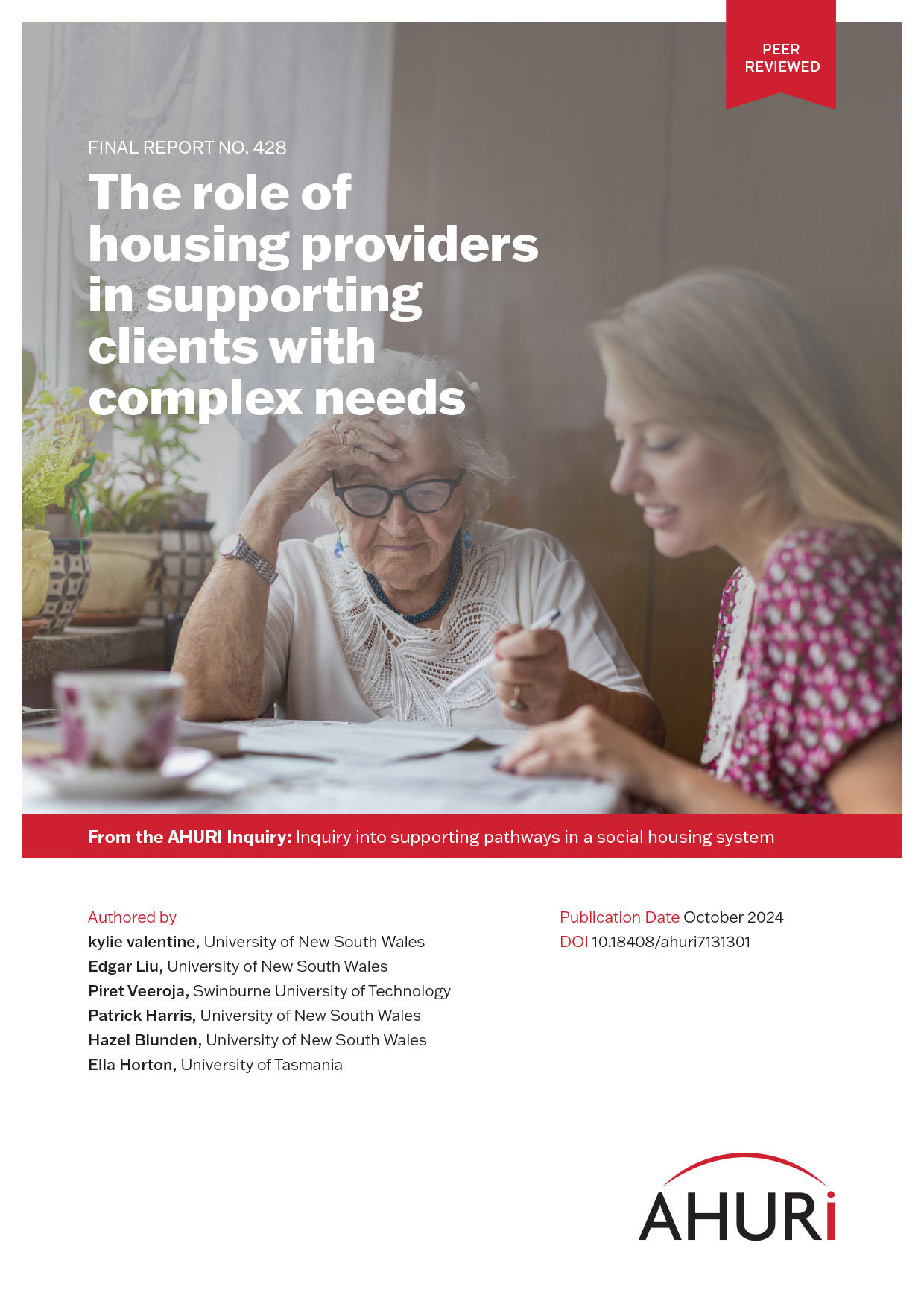
More social housing places would reduce further harm to health and wellbeing
03 Oct 2024
Supply of more housing options for people on social housing waiting lists should be given increased priority, as longer wait times and uncertain or unsafe housing creates further challenges for applicants already facing increased health needs, according to new AHURI research.
The research, ‘The role of housing providers in supporting clients with complex needs’, undertaken for AHURI by researchers from UNSW Sydney, Swinburne University of Technology and University of Tasmania, examines the current challenges in providing social housing to people with complex support needs and considers potential alternative policy responses.
Long social housing waiting lists are hurting people’s mental health
Social housing waiting lists are large and growing, and made up of people with a diverse range of health and support needs. However, they are less likely to receive support than people already in social housing because managing relationships with multiple service systems is itself a very demanding task. The size of current social housing waiting lists also undermines the potential to support people with complex needs.
Stable, affordable housing helps clients’ health
‘We found that, at the simplest service response, connecting people to secure, stable housing helps their health and well-being,’ says lead author of the research, Professor kylie valentine from UNSW. ‘Precarious and unstable housing has enormous costs for health. Efforts to increase access to health services for people in precarious housing needs to be supported by initiatives to improve housing stability.’
Social housing is more than a house; it supports clients with complex needs
The research also found that the role of social housing in supporting clients with complex needs could be better recognised and resourced.
‘Services that provide housing support may be the first and only point of contact that clients with unmet mental health needs have with the support service system’, says Professor valentine. ‘ As a result, if housing providers can embed a support system with staff that are skilled and supported to take a partnership approach, this can be really effective in connecting people with the services they need .’
Social housing is often the best tenure type for people with complex support needs
‘While our research found all forms of housing tenure can be the basis for integrated support, social housing offers benefits that other types of tenure do not,’ says Professor valentine. ‘In particular, subsidy programs to place people in private rental are weakened by poor tenure security, while a shortage of suitable properties leads to rising rents and low vacancy rates.’
‘Furthermore, private rental properties are often not safe for people with complex support needs. People may not want to live alone or have the resources to maintain a tenancy without intensive support. Sharing with flatmates—either friends or people they do not know—can also be very difficult for people with support needs, and for their flatmates.’
Alternative housing programs could provide for more people on social housing wait-lists
Greater supply of social housing is a long-term solution to the support needs of many people currently on social housing waiting lists. But in a more immediate timeframe, effective programs to provide secure, genuinely affordable housing for people with low and moderate incomes would reduce the pressure on social housing waiting lists.
Developing an alternative tenure type that has the same housing costs and security of tenancy as social housing will benefit people pushed out of the private rental market by housing costs. Examples of this would be increasing access to private rental market properties through headleasing and increasing access to other resources such as brokerage funding.

